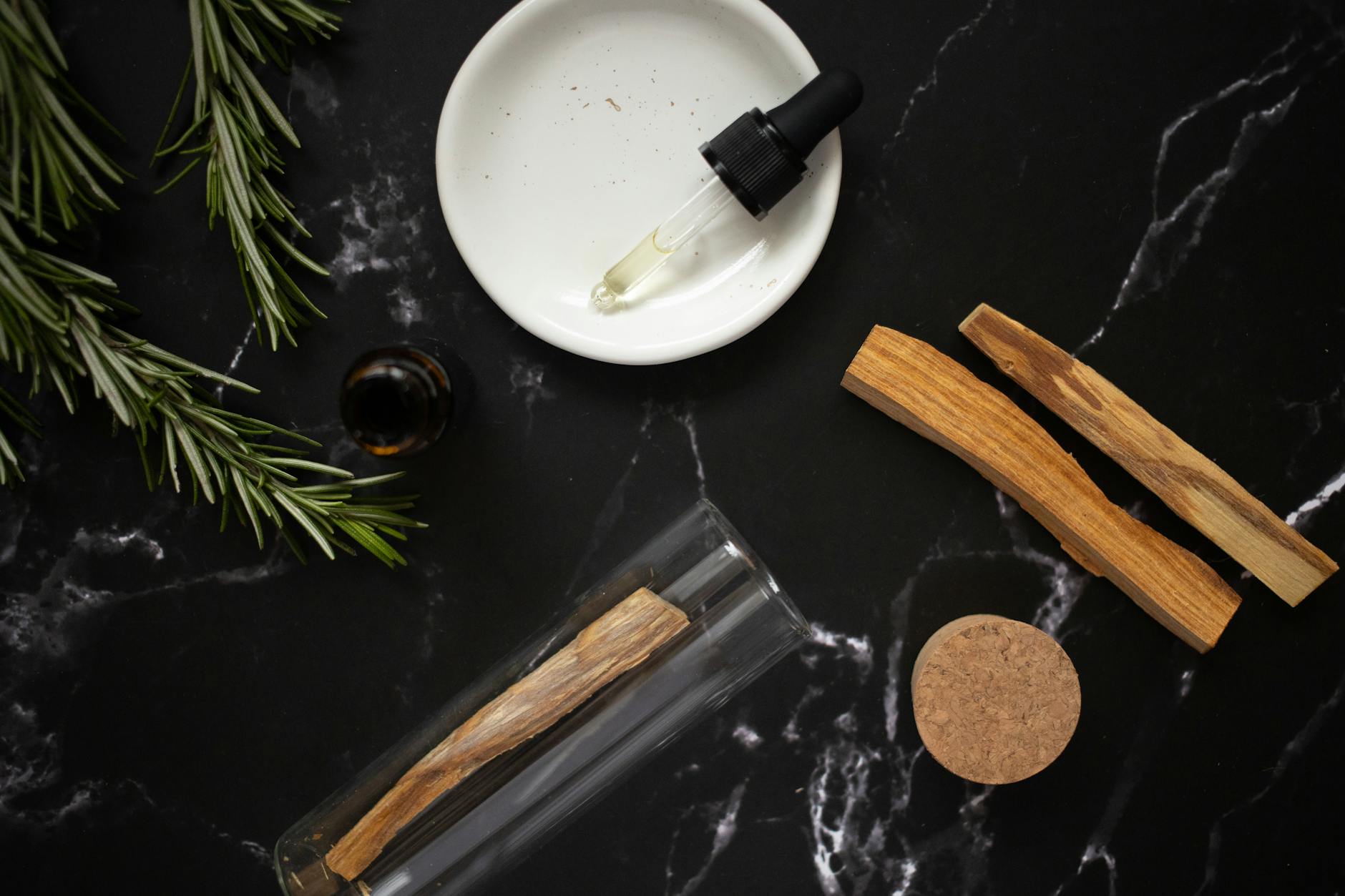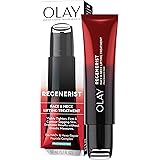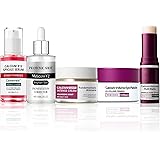Review: 5 Best Organic Carrier Oils for Your DIY Skincare [2024]
Ever stared at the back of a skincare product, feeling like you need a chemistry degree to understand the ingredient list? You’re not alone! More and more of us are turning to Mother Nature for answers, and that’s where organic carrier oils come in. These little bottles of liquid gold are about to become your new best friends in the world of DIY skincare.
Imagine whipping up your own face serum or body butter, knowing exactly what’s going into it. No mystery ingredients, no unpronounceable chemicals – just pure, nourishing goodness straight from nature. Whether you’re dealing with dry patches, breakouts, or just want to give your skin some extra love, there’s a carrier oil out there for you.
In this review, we’re diving into the world of organic carrier oils, exploring five superstar oils that can revolutionize your skincare routine. From the lightweight wonder of grapeseed oil to the rich luxury of avocado oil, we’ve got options for every skin type and concern.
New to DIY skincare? Don’t worry – we’ve got you covered with easy tips and tricks. Been mixing up your own concoctions for years? Get ready to discover some new favorites.
So, are you ready to unlock the power of nature and give your skin the TLC it deserves? Let’s dive in and discover which organic carrier oils might just become the secret weapons in your beauty arsenal. Trust me, your skin will thank you!
What are Organic Carrier Oils?
Organic carrier oils are essential in skincare, providing both nourishment and a base for other ingredients. These oils are cold-pressed from the seeds, nuts, or kernels of various plants and are free from chemical solvents and pesticides. Unlike essential oils, carrier oils are not highly concentrated, making them safe to apply directly to the skin.
Uses in Skincare
Carrier oils serve multiple functions in skincare routines. They help dilute essential oils, making them safe for topical application. They also provide moisturizing properties, aiding in the hydration and overall health of the skin.
- Moisturizing: Organic carrier oils offer deep hydration, making them perfect for dry and sensitive skin. They contain fatty acids that help lock in moisture.
- Anti-inflammatory: Many organic carrier oils have anti-inflammatory properties, which can reduce redness and irritation.
- Nutrient-rich: These oils are full of vitamins and antioxidants that help protect and repair the skin.
Popular Types
There are several types of organic carrier oils, each with its unique properties:
- Jojoba Oil: Resembling the natural oils found in human skin, jojoba oil is excellent for all skin types.
- Coconut Oil: Known for its anti-microbial properties, it’s great for both skin health and as a base for other ingredients.
- Argan Oil: Rich in vitamin E and essential fatty acids, it’s perfect for hydrating and softening the skin.
- Sweet Almond Oil: Ideal for sensitive skin, it provides gentle and effective moisture.
- Rosehip Oil: Packed with vitamins A and C, it’s great for reducing signs of aging and repairing skin damage.
Benefits of Going Organic
Choosing organic carrier oils ensures you’re getting a product free from harmful chemicals. Organic variants are grown without pesticides and synthetic fertilizers, making them safer not just for your skin, but also for the environment.
- Safer for skin: No chemicals mean less chance of skin irritation or allergic reactions.
- Eco-friendly: Organic farming practices are better for the planet, reducing pollution and promoting biodiversity.
Using organic carrier oils in your DIY skincare recipes can elevate your skincare game, providing effective, natural, and safe ways to keep your skin healthy and glowing.

Incorporating these oils into your daily routine can make a noticeable difference in the health and appearance of your skin. Whether you’re blending them with essential oils or using them on their own, their natural benefits are undeniable.
Benefits of Using Organic Carrier Oils
Incorporating organic carrier oils into your skincare routine can be a transformative experience. These oils not only nourish and hydrate your skin but also bring a wealth of natural properties that are gentle and effective. Here’s why you should consider adding them to your DIY skincare recipes.
Nourishment
Organic carrier oils are packed with vitamins and minerals that are essential for skin health. They can penetrate deeply into the skin, delivering nutrients directly to your cells. Unlike synthetic products, organic carrier oils do not contain harsh chemicals or preservatives that can strip your skin of its natural oils.
- Rich in Vitamins & Minerals: Oils like jojoba oil and argan oil are loaded with vitamins E and A, which help in repairing and regenerating skin tissue.
Hydration
Keeping your skin hydrated is crucial for maintaining its elasticity and preventing premature aging. Organic carrier oils act as excellent moisturizers that lock in moisture and keep your skin soft and supple.
- Long-lasting Moisture: Unlike water-based moisturizers that evaporate quickly, oils like coconut oil and sweet almond oil provide long-lasting hydration.

Natural Properties
One of the most significant benefits of organic carrier oils is their natural properties. They are free from pesticides, herbicides, and other synthetic chemicals. This makes them safer and more effective for those with sensitive skin or allergies.
- Anti-inflammatory: Oils such as rosehip oil have anti-inflammatory properties that can reduce redness and irritation.
- Antioxidant-rich: Many organic oils are rich in antioxidants, which protect the skin from free radical damage and promote a youthful appearance.
Versatility
Organic carrier oils are incredibly versatile and can be used in a variety of skincare applications. From facial cleansers to body moisturizers, these oils can replace many synthetic products in your beauty arsenal.
- Multi-purpose Use: Oils like olive oil and grapeseed oil can be used for makeup removal, massage, and even as a hair treatment.
Cost-effective
Though some may argue that organic products are expensive, organic carrier oils are generally cost-effective. A little goes a long way, making them a wise investment for your skincare routine.
- Economical: A small bottle of oil can last for months, making it a cost-effective option compared to high-end synthetic skincare products.
Using organic carrier oils in your DIY skincare recipes offers numerous benefits. They nourish, hydrate, and protect your skin with natural properties that are hard to beat. Plus, they’re versatile and cost-effective, making them a great addition to any skincare routine. Stay tuned for our review of the top five organic carrier oils that you should consider.
Top 5 Organic Carrier Oils for DIY Skincare
Are you ready to transform your skincare routine? Look no further than these top 5 organic carrier oils. Not only will they nourish your skin, but they’ll also elevate your DIY skincare game to new heights.
1. Jojoba Oil: Properties, Benefits, and Suitable Skin Types
Nature’s Liquid Gold
Imagine an oil so similar to your skin’s natural sebum that it’s like a second skin. That’s jojoba oil. Its molecular structure closely mimics human sebum, making it the perfect choice for all skin types. Acne-prone? Jojoba’s got you covered. Dry skin? It’ll quench that thirst. Plus, its long shelf life means you’ll get more bang for your buck.
- Properties: Non-comedogenic, hypoallergenic, and rich in vitamins E and B-complex.
- Benefits:
- Balances oil production
- Moisturizes without clogging pores
- Has antibacterial and anti-inflammatory properties
- Suitable Skin Types: Oily, acne-prone, dry, and sensitive skin.
Comparison Table: Jojoba Oil vs. Other Carrier Oils
| Carrier Oil | Comedogenic Rating | Suitable Skin Types | Key Benefits |
|---|---|---|---|
| Jojoba Oil | 2 | Oily, Acne-Prone, Dry, Sensitive | Balances oil, antibacterial, anti-inflammatory |
| Sweet Almond Oil | 2 | Dry, Sensitive, Normal | Nourishing, rich in vitamins A and E |
| Argan Oil | 0 | Mature, Dry, Normal | Anti-aging, rich in fatty acids |
| Coconut Oil | 4 | Dry, Sensitive | Moisturizing, antimicrobial |
| Avocado Oil | 3 | Dry, Mature, Sensitive, Normal | Deep moisturizing, rich in vitamin E |
 Photo by Monstera Production
Photo by Monstera Production
User Reviews:
2. Sweet Almond Oil: Nourishing Benefits and Ideal Uses
The Gentle Giant
Sweet almond oil is a gentle yet powerful addition to your skincare routine. Rich in vitamin E and fatty acids, it’s excellent for all skin types, especially sensitive skin. It helps improve complexion and skin tone while providing deep hydration. Its ability to penetrate deeply makes it an ideal massage oil and a perfect base for your DIY skincare blends.
- Nourishing Benefits:
- Hydrates and softens skin
- Reduces the appearance of scars and stretch marks
- Calms irritation and inflammation
- Vitamin Content: Rich in vitamins A, E, and omega-3 fatty acids.
- Ideal Uses:
- Face and body moisturizer
- Make-up remover
- Massage oil in DIY skincare recipes
User Reviews:
3. Argan Oil: Anti-Aging Properties and Rich Fatty Acid Profile
The Moroccan Miracle Worker
Packed with vitamin E and essential fatty acids, argan oil is your ticket to a youthful glow. It fights free radicals, reduces inflammation, and even helps control excess oil production. Why settle for ordinary when you can have the “liquid gold” of Morocco in your skincare arsenal?
- Anti-Aging Properties:
- Reduces fine lines and wrinkles
- Improves skin elasticity
- Protects against environmental damage
- Fatty Acid Profile: Rich in oleic and linoleic acids.
- How to Use Effectively:
- As a nightly facial oil
- Mixed into creams and lotions
- Added to masks for hair and skin rejuvenation
User Reviews:
4. Coconut Oil: Moisturizing Properties and Antimicrobial Benefits
The Tropical Multitasker
Coconut oil is a true skincare superhero. Its antimicrobial and anti-inflammatory properties make it excellent for treating acne and soothing irritated skin. It’s also a fantastic moisturizer, leaving your skin soft and supple. From head to toe, coconut oil has got you covered.
- Moisturizing Properties:
- Provides deep hydration
- Reduces dryness and flakiness
- Creates a protective barrier on the skin
- Antimicrobial Benefits:
- Helps in combating bacterial and fungal infections
- Can soothe eczema and psoriasis
- Versatility in DIY Recipes:
- Can be used as a base for lotions and creams
- Effective in hair masks and lip balms
User Reviews:
5. Avocado Oil: Deep Moisturizing Capabilities and Vitamin E Content
The Ultra-Nourishing Powerhouse
For those with dry or mature skin, avocado oil is a game-changer. Its high content of oleic acid deeply moisturizes while its vitamins A, D, and E provide powerful antioxidant benefits. You’ll wonder how you ever lived without it.
- Deep Moisturizing Capabilities:
- Penetrates deeply into the skin
- Provides long-lasting hydration
- Helps to heal chapped and dehydrated skin
- Vitamin E Content:
- Rich in antioxidants that fight free radicals
- Promotes skin regeneration
- Best Applications:
- Facial oils and serums
- Body lotions and butters
- Enhancing the effects of other carrier oils in DIY recipes
Bonus Oils

Grapeseed Oil: The Lightweight Champion
Say goodbye to clogged pores with grapeseed oil. Light, easily absorbed, and antioxidant-rich, it’s perfect for achieving a balanced, radiant complexion without greasiness.

Rosehip Seed Oil: Your Skin’s Best Friend
Want to fade scars and fight aging signs? Rosehip seed oil, rich in vitamins A and C, promotes collagen production and cell turnover. Watch your skin’s texture and tone improve dramatically.
Don’t just take our word for it – try these organic carrier oils and witness the transformation yourself. Your skin deserves nature’s best, so why settle for less? Embrace these powerful oils and unlock your skin’s true potential today.
Organic Carrier Oils Buying Guide
Price Comparison Table for the Carrier oils: Price and Online Retailers
| Carrier Oil | Avg Price (per oz) | Price Range | Popular Online Retailers |
|---|---|---|---|
| Jojoba Oil | $8 | $6 – $10 | Amazon, iHerb, Mountain Rose Herbs |
| Argan Oil | $12 | $10 – $15 | Sephora, The Ordinary, Moroccan Oil |
| Rosehip Seed Oil | $10 | $8 – $12 | The Ordinary, Trilogy, Life-flo |
| Grapeseed Oil | $5 | $3 – $7 | Now Foods, Aura Cacia, Maple Holistics |
| Avocado Oil | $7 | $5 – $9 | Chosen Foods, Now Foods, Primal Kitchen |
| Coconut Oil | $4 | $2 – $6 | Nutiva, Viva Naturals, Dr. Bronner’s |
| Sweet Almond Oil | $6 | $4 – $8 | Now Foods, Aura Cacia, Sky Organics |
Note: Prices and availability may vary. These retailers are provided as examples and do not constitute endorsements. Always purchase from reputable sources and compare prices and reviews before buying. For the best quality, look for organic, cold-pressed, and unrefined oils.
Olay Regenerist Neck and Face Roller, Neck Cream for Tightening and Firming, Anti-Aging Moisturizer for Women, Anti-Wrinkle Serum, Face Lift Cream, Cooling, Fragrance-Free, Hexa-Repair & NAD+, 1.7oz
$34.99 (as of February 22, 2026 11:34 GMT -04:00 – More infoProduct prices and availability are accurate as of the date/time indicated and are subject to change. Any price and availability information displayed on [relevant Amazon Site(s), as applicable] at the time of purchase will apply to the purchase of this product.)Calcium Daily Care Skin Set with Calcium Multi Balm Stick – Gentle Firming & Moisture Routine for Smooth, Comfortable-Looking Skin, Daily Use Skincare Collection, Travel-Friendly
$59.99 (as of February 22, 2026 11:34 GMT -04:00 – More infoProduct prices and availability are accurate as of the date/time indicated and are subject to change. Any price and availability information displayed on [relevant Amazon Site(s), as applicable] at the time of purchase will apply to the purchase of this product.)Certification Logos: Your Guide to Quality Assurance
When shopping for organic carrier oils, keep an eye out for these important certifications:
- USDA Organic Look for: The USDA Organic seal Meaning: The product contains at least 95% organic ingredients and adheres to strict USDA guidelines for organic farming and processing.
- EU Organic Look for: The EU green leaf logo Meaning: Meets the European Union’s standards for organic production, which are similar to USDA standards.
- ECOCERT Look for: The ECOCERT logo Meaning: Certifies that the product is organic and uses environmentally friendly practices throughout production.
- Fair Trade Certified Look for: The Fair Trade USA or Fairtrade International logo Meaning: Ensures fair wages and working conditions for farmers and workers involved in production.
- Non-GMO Project Verified Look for: The butterfly logo Meaning: Confirms that the product contains no genetically modified organisms.
- COSMOS Look for: The COSMOS ORGANIC or COSMOS NATURAL logo Meaning: Certifies organic and natural cosmetics according to European standards.
- Leaping Bunny Look for: The jumping rabbit logo Meaning: Certifies that the product and its ingredients are cruelty-free and not tested on animals.
- Vegan Society Look for: The sunflower logo Meaning: Confirms that the product contains no animal-derived ingredients.
- Demeter Look for: The Demeter logo Meaning: Certifies that the product meets biodynamic agriculture standards, which go beyond organic.
- Rainforest Alliance Look for: The frog logo Meaning: Indicates that the product was sourced using methods that support biodiversity and sustainable livelihoods.
When shopping for your carrier oils, look for these certifications to ensure you’re getting high-quality, ethically produced products. Keep in mind that smaller producers may not always have these certifications due to cost, but may still follow organic and ethical practices. In such cases, don’t hesitate to reach out to the company for more information about their sourcing and production methods.
How to Choose the Right Organic Carrier Oil
Selecting the perfect organic carrier oil for your DIY skincare recipes can feel like a daunting task. Here’s a straightforward guide to help you pick the ideal oil based on your skin type and the benefits you desire.
 Photo by Anna Tarazevich
Photo by Anna Tarazevich
Skin Type
Oily Skin
If you have oily skin, it’s best to choose carrier oils that are light and won’t clog your pores. Here are some great options:
- Jojoba Oil: Mimics the skin’s natural oils, balancing oil production.
- Grapeseed Oil: Non-greasy and quickly absorbed.
- Hemp Seed Oil: Rich in omega-3 and omega-6 fatty acids, reduces inflammation.
Dry Skin
For dry skin, you’ll want oils that provide deep hydration:
- Avocado Oil: Packed with vitamins A, D, and E, deeply nourishing.
- Olive Oil: High in antioxidants, keeps skin moisturized.
- Almond Oil: Soothes and softens dry, irritated skin.
Sensitive Skin
Sensitive skin requires gentle care. Consider these carrier oils:
- Argan Oil: Rich in vitamins E and A, reduces inflammation.
- Apricot Kernel Oil: Light and soothing, reduces irritation.
- Calendula Oil: Known for its healing properties, ideal for sensitive skin.
Desired Benefits
Anti-Aging
For anti-aging benefits, choose oils rich in antioxidants and nutrients:
- Rosehip Oil: Reduces wrinkles and scars.
- Pomegranate Seed Oil: Promotes cell regeneration.
- Sea Buckthorn Oil: High in vitamins C and E, enhances skin elasticity.
Acne-Prone Skin
To combat acne, look for oils with antibacterial and anti-inflammatory properties:
- Tamanu Oil: Known for its healing powers.
- Neem Oil: Antibacterial, helps fight breakouts.
- Tea Tree Oil: Reduces acne and prevents future breakouts.
Soothing Irritated Skin
If your goal is to soothe irritated skin, consider these oils:
- Chamomile Oil: Calming and anti-inflammatory.
- Calendula Oil: Reduces redness and promotes healing.
- Borage Oil: Contains gamma-linolenic acid, reduces inflammation.
Additional Tips
- Check for Purity: Always opt for 100% pure, organic oils without any additives.
- Storage: Store oils in a cool, dark place to maintain their efficacy.
- Patch Test: Always perform a patch test to rule out any allergic reactions.
When selecting an oil, remember to match it with your skin’s unique needs and desired benefits. Each oil has its own set of properties that can help you achieve healthy, glowing skin.
For more information on organic skincare, check out this detailed guide from Healthline.
Keep experimenting to find the perfect blend that works for you. Happy DIY skincare!
DIY Skincare Recipes Using Organic Carrier Oils
Making your own skincare products at home is both fun and rewarding. By using organic carrier oils, you can ensure that your creations are natural and beneficial for your skin. Below are some easy and effective DIY skincare recipes to inspire you.

Moisturizing Facial Oil
Creating a facial oil can be simple and quick. This recipe helps hydrate and nourish your skin without the use of any artificial ingredients.
Ingredients:
- 2 tablespoons of jojoba oil
- 1 tablespoon of argan oil
- 5 drops of lavender essential oil
Instructions:
- Combine the jojoba oil and argan oil in a small bottle.
- Add the lavender essential oil.
- Shake well before each use.
- Apply a few drops to your face, massaging it in gently.
Revitalizing Body Scrub
A body scrub can exfoliate dead skin cells, leaving your skin feeling smooth and refreshed. This simple recipe uses coffee grounds and coconut oil.
Ingredients:
- 1/2 cup of coffee grounds
- 1/4 cup of organic coconut oil
- 1 tablespoon of brown sugar
Instructions:
- Mix all ingredients in a bowl until well combined.
- Apply the mixture to your skin in circular motions.
- Rinse off with warm water and pat dry.
Nourishing Hair Mask
Your hair deserves some love too. This hair mask uses avocado oil to provide deep conditioning and shine.
Ingredients:
- 2 tablespoons of avocado oil
- 1 tablespoon of honey
- 1 ripe banana, mashed
Instructions:
- Mix the mashed banana, avocado oil, and honey in a bowl until smooth.
- Apply to your hair, focusing on the ends.
- Leave it on for 20-30 minutes.
- Rinse thoroughly and shampoo as usual.
Healing Lip Balm
Chapped lips? No problem! This DIY lip balm recipe combines shea butter and sweet almond oil for a soft, smooth pout.
Ingredients:
- 1 tablespoon of shea butter
- 1 tablespoon of sweet almond oil
- 3 drops of peppermint essential oil
Instructions:
- Melt the shea butter in a double boiler.
- Add the sweet almond oil and peppermint essential oil.
- Pour the mixture into a small container and let it cool.
- Apply as needed to keep your lips moisturized.
Hydrating Hand Cream
Our hands go through a lot each day, so they deserve some pampering, too. This easy recipe uses olive oil and beeswax for a rich, hydrating hand cream.
Ingredients:
- 1/4 cup of olive oil
- 2 tablespoons of beeswax pellets
- 5 drops of your favorite essential oil (like lavender or chamomile)
Instructions:
- Melt the beeswax pellets in a double boiler.
- Add the olive oil and stir until fully combined.
- Remove from heat and add your essential oil.
- Pour into a container and let it cool before using.
Making your own DIY skincare recipes is a wonderful way to take control of what goes onto your skin. Using organic carrier oils ensures you’re getting the best, without harmful chemicals.
For more information on the benefits of using organic carrier oils, check out this informative guide.

Conclusion
Using organic carrier oils in your DIY skincare recipes can be a game-changer for your skin health and beauty routine. These oils are packed with natural nutrients, antioxidants, and essential fatty acids that can deeply nourish and rejuvenate your skin. Whether you’re looking to create a hydrating face serum, a soothing body oil, or a luxurious hair treatment, these carrier oils can be the perfect base for your creations.
 Photo by Anete Lusina
Photo by Anete Lusina
Benefits of Organic Carrier Oils
- Hydration and Moisture
Organic carrier oils are rich in essential fatty acids that help to lock in moisture and keep your skin hydrated. Examples include jojoba oil and sweet almond oil, which are fantastic for maintaining skin elasticity and smoothness. - Nutrient-Rich Formulation
Many organic carrier oils, like argan and rosehip seed oil, are packed with vitamins A, C, and E, which are vital for skin repair and rejuvenation. These vitamins act as antioxidants, protecting your skin from free radical damage and promoting overall skin health. - Customizable for All Skin Types
Because they are natural and versatile, organic carrier oils can be mixed and matched to suit any skin type. Whether you have oily, dry, or sensitive skin, there’s an oil for you. For oily skin, grapeseed oil is a great option, while coconut oil is perfect for dry skin. - Chemical-Free Beauty
Using organic carrier oils means you’re avoiding harmful chemicals and preservatives found in many commercial skincare products. This leads to fewer skin irritations and allergies, making them perfect for even the most sensitive skin types. - Sustainability
Organic oils are sourced from plants that are grown without the use of synthetic pesticides or fertilizers, making them better for the environment. By choosing organic, you’re supporting sustainable farming practices that help protect our planet.
Storage Tips: Preserving the Quality of Your Carrier Oils
Proper storage is crucial for maintaining the potency and purity of your carrier oils. Follow these guidelines to ensure your oils stay fresh and effective:
- Cool, Dark Place
- Store all oils away from direct sunlight and heat sources.
- A cabinet or drawer in a cool room is ideal.
- Avoid storing oils in bathrooms due to temperature fluctuations.
- Appropriate Containers
- Use dark glass bottles (amber or cobalt blue) to protect oils from light exposure.
- Ensure bottles have tight-sealing caps to prevent oxidation.
- Avoid plastic containers, as they can leach chemicals into the oils.
- Temperature Control
- Most oils are best stored at room temperature (60-75°F or 15-24°C).
- Some oils, like coconut oil, may solidify at cooler temperatures – this is normal.
- Refrigeration can extend the shelf life of some oils, particularly rosehip seed oil.
- Minimize Air Exposure
- Transfer oils to smaller bottles as you use them to reduce air in the container.
- Always cap bottles tightly after use.
- Consider using bottles with dropper tops for oils you use frequently.
- Cleanliness
- Use clean, dry utensils when handling oils to prevent contamination.
- Avoid touching the bottle’s rim with your fingers.
- Labeling
- Label each bottle with the oil type and purchase date.
- Note the expected shelf life to track freshness.
Oil-Specific Storage Tips:
- Jojoba Oil: Very stable, can be stored at room temperature for up to 2 years.
- Argan Oil: Store in a cool, dark place. Can last up to 2 years if properly stored.
- Rosehip Seed Oil: Highly prone to oxidation. Refrigerate and use within 6 months.
- Grapeseed Oil: Store in a cool, dark place. Use within 6-12 months.
- Avocado Oil: Can be refrigerated to extend shelf life up to 18 months.
- Coconut Oil: Very stable at room temperature. Can last up to 2 years.
- Sweet Almond Oil: Store in a cool, dark place. Use within 12 months.
Signs of Rancidity:
- Unpleasant or “off” smell
- Changes in color or texture
- Cloudy appearance in typically clear oils
Encouragement to Try Organic Carrier Oils
Incorporating organic carrier oils into your DIY skincare routine is not only beneficial for your skin, but it’s also a fun and creative way to take control of your beauty regimen. Imagine the satisfaction of knowing exactly what’s in your skincare products and tailoring them to your specific needs.
Why not start today? Head over to your local health store or order online to get your hands on some high-quality organic carrier oils. Your skin will thank you!
For more information on the best organic carrier oils, you can visit this comprehensive guide on organic carrier oils.

FAQs: Common Questions About Carrier Oils
- Q: What’s the difference between carrier oils and essential oils?
A: Carrier oils are vegetable oils used to dilute essential oils and “carry” them onto the skin. They’re mild and safe for direct skin application, unlike essential oils which are highly concentrated and can irritate skin if used undiluted. - Q: Can I use multiple carrier oils together?
A: Absolutely! Blending carrier oils can combine their unique benefits. Just ensure the oils are compatible and suit your skin type. - Q: Are carrier oils comedogenic?
A: It varies. Some, like grapeseed oil, are non-comedogenic, while others, like coconut oil, may clog pores for some people. Always patch test and choose oils suitable for your skin type. - Q: How often should I use carrier oils in my skincare routine?
A: Most carrier oils can be used daily. However, start with a few times a week and adjust based on how your skin responds. - Q: Can carrier oils replace my regular moisturizer?
A: For many people, yes. Carrier oils can provide excellent moisturization. However, some may prefer to use them in addition to or mixed with their regular moisturizer.
Conclusion: Embracing Nature’s Skincare Solutions
As we’ve explored these seven remarkable organic carrier oils, it’s clear that nature offers powerful solutions for our skincare needs. From the versatile jojoba oil to the deeply nourishing avocado oil, each brings unique benefits to the table.
Our top picks include:
- Jojoba Oil for its similarity to our skin’s natural sebum
- Argan Oil for its anti-aging properties
- Rosehip Seed Oil for scar reduction and skin rejuvenation
Remember, the best oil for you depends on your specific skin type and concerns. Don’t be afraid to experiment with different oils or blends to find your perfect match.
Incorporating these organic carrier oils into your skincare routine isn’t just about achieving glowing skin – it’s about embracing a more natural, conscious approach to self-care. By choosing high-quality, organic oils, you’re not only nurturing your skin but also supporting sustainable and ethical practices in the beauty industry.
Call to Action: Your Turn to Glow!
Now that you’re armed with knowledge about these amazing carrier oils, it’s time to put it into action! We encourage you to:
- Try incorporating one or two of these oils into your skincare routine. Start small and see how your skin responds.
- Experiment with creating your own DIY skincare blends. Remember, a little goes a long way with these potent oils!
- Share your experiences! We’d love to hear about your journey with carrier oils. Which one became your favorite? Did you discover any unique blends?
- Spread the word! If you found this guide helpful, share it with friends and family who might be interested in natural skincare solutions.
- Keep learning! The world of natural skincare is vast and exciting. Stay curious and open to discovering new ways to nourish your skin naturally.
Remember, your skin is unique, and what works for others might not work for you. Listen to your skin, be patient, and enjoy the process of discovering your perfect natural skincare routine.
Ready to start your carrier oil journey? Your radiant, naturally nourished skin awaits!









